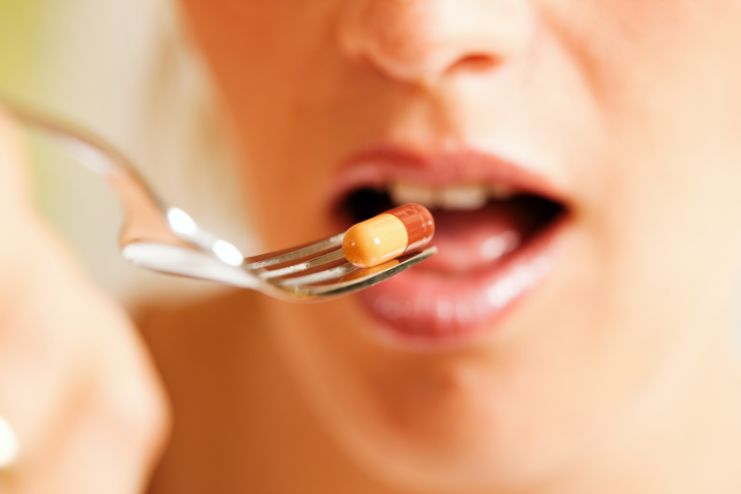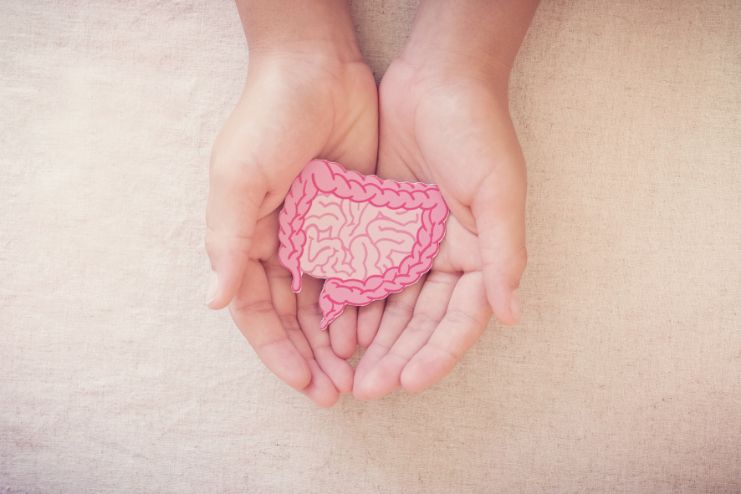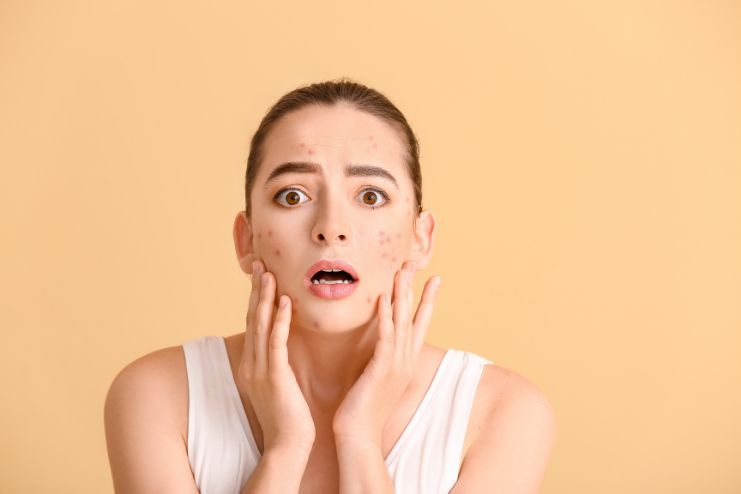Your 20s might feel like your prime, and in many ways they are, but they’re also a crucial time to lay the foundation for lifelong health. While this decade often brings energy, autonomy, and adventure, it’s also the time when your everyday decisions start to shape your long-term health.
Too many women feel invincible during these years, but this is the exact time to take charge of your health and address early warning signs before problems become bigger.
Many common—and often overlooked—health issues begin quietly in young women in their 20s. In this article, we’ll take a closer look at six health problems that frequently affect women during this pivotal decade.
Read More: Self-Care Tips to Love Yourself Better
6 Common Health Issues in Women in Their 20s (and How to Prevent Them)
Your 20s can be your healthiest decade, but it’s also when most underlying problems start. Let’s read more about the health problems that might begin in your 20s, such as hormonal imbalance, nutrient deficiencies, gut issues, skin problems, anxiety and depression, and irregular sleep.
1. Hormonal Imbalances (PMS, PCOS, Irregular Periods)

Hormonal shifts are normal, but constant imbalances in your 20s can point to underlying problems. PMS and PCOS symptoms may involve mood swings, acne, irregular menstrual periods, severe cramps, weight gain, or exhaustion.
These are not mere ordinary “women’s issues” but perhaps early signs of hormonal problems, particularly if symptoms are intense or lasting. PCOS, a widespread disorder in young women, is characterized by elevated levels of androgens, which interfere with the menstrual cycle and reproductive function.
Stress, dietary imbalances, physical inactivity, or unresolved health conditions may also disrupt hormones. Recognizing and addressing these imbalances early on can enhance your energy, mood, and overall health—and even shield you from future problems such as diabetes or infertility.
Prevention Tips:
- Track your cycle: Use an app or a journal to keep track of changes, symptoms, and details like how heavy or light your menstrual flow is each day.
- Eat an anti-inflammatory diet: Focus on whole grains, vegetables, and healthy fats, and cut back on sugar and processed foods.
- Manage stress and exercise regularly: Yoga, walking, or other low-intensity workouts can aid hormonal balance.
- Test your hormone levels: If the symptoms persist, consult a doctor to check for PCOS or other conditions affecting hormones.
Taking small steps today can prevent you from having larger health problems in your 20s and beyond.
2. Anxiety and Depression

Your 20s are full of change—from new responsibilities and school or work stress to shifting relationships and constant exposure to social media.
At this time, anxiety and depression rates are the highest, but most women write off their symptoms as “just stress.” Ongoing sadness, anxiety, and mood swings in the 20s, lack of motivation, or difficulty sleeping could be symptoms of a more serious condition, such as ongoing depressive disorder or generalized anxiety.
Ignoring these early warning signs may lead to emotional burnout and even physical illness. That’s why it’s worth paying attention to what your mind and body are trying to say.
If left unresolved, these battles can have implications on relationships, school or work performance, and overall quality of life. The silver lining, there are solutions to prevent burnout in young adults today and to promote emotional health.
Prevention Tips:
- Prioritize sleep, social connection, and screen boundaries: Insufficient rest, loneliness, and excessive screen time can exacerbate anxiety and depression. Establish a daily routine that nourishes body and mind.
- Explore therapy or counseling early: You don’t have to wait for things to get “bad.” Therapy is an excellent tool for developing emotional strength and learning how to deal with stress.
- Support mood with nutrition: Minerals and vitamins such as Omega-3s (salmon and flaxseeds), B vitamins (green leafy vegetables, eggs), and magnesium (nuts, legumes, dark chocolate) aid in balancing brain chemistry and improving mood.
All of the above can help ensure overall physical well-being in your 20s.
3. Nutrient Deficiencies (Iron, Vitamin D, B12)

One of the most frequently missed health issues in women in their 20s is nutrient deficiencies. Most young women are not aware they are low on vital vitamins and minerals until symptoms such as exhaustion, lack of concentration, or thinning of hair appear.
Nutrient deficiencies in the 20s are particularly prevalent because of menstruation, hectic schedules, meal skipping, strict diets, or vegetarianism. Iron deficiency, usually due to blood loss during periods, can make you weak and perpetually tired.
Vitamin D deficiency affects people who spend most of their time indoors or live in places with less sunlight, resulting in muscle aches, low mood, or even weakened bones.
Vitamin B12 is another essential nutrient, particularly for vegetarians and vegans, since it’s mostly present in animal foods. Low levels of B12 can lead to numbness, memory problems, or difficulty concentrating.
Prevention Tips:
- Get regular blood work: Schedule regular tests for iron, Vitamin D, and B12 levels. Early diagnosis makes treatment a breeze.
- Eat iron-rich foods with vitamin C: Include lentils, spinach, pumpkin seeds, or tofu in your diet, and have them alongside foods that are rich in vitamin C, such as citrus fruits or tomatoes, to enhance absorption.
- Supplement smartly: If you’re a vegan or vegetarian, consider a B12 supplement. If you stay away from sunlight, a Vitamin D3 supplement will be a huge help.
Taking care of your diet is a strong act of self-love.
4. Gut Issues (IBS, Bloating, Food Sensitivities)

Gastrointestinal issues such as Irritable Bowel Syndrome (IBS), bloating, and food sensitivities are the most neglected health issues in your 20s. For most women, these issues—bloating, irregular digestion, constipation—become a normal way of life.
But that does not imply that they are normal. Stress, hormonal changes, highly processed foods, and busy lifestyles usually affect the gut health of young women.
IBS is specifically a recurring condition that afflicts the colon and may worsen with diet and emotional stress.
There’s also strong research indicating a link between disruptive gut and psychological health, i.e., digestive discomfort can also manifest as anxiety, depression, or mood swings. If not managed properly, these conditions can escalate into a recurring cycle of distress and declining health.
Prevention Tips:
- Add fiber and fermented foods: Leafy greens, oats, yogurt, and kimchi or kefir support digestion and balance gut bacteria.
- Stay hydrated: Drink enough water daily to prevent constipation and aid smoother digestion.
- Limit ultra-processed foods and sugary drinks: These can harm your gut and cause inflammation.
- Keep a food-symptom journal: Monitoring meals and symptoms helps identify intolerances such as dairy, gluten, or additives.
Caring for your gut now can make bloating and discomfort go away and improve energy, mood, and confidence.
5. Skin Problems (Adult Acne, Sensitivity, Pigmentation)

Your teens may be behind you, but in your 20s, you can still be battling breakouts, sensitive skin, and hyperpigmentation, mostly due to hormonal imbalance, bad diet, or even chronic stress.
Another major contributing factor is the connection between skin and digestion—poor gut health will manifest on your face in the form of acne, dullness, or redness.
During adulthood, acne often appears along the jawline and chin, typically triggered by hormonal changes. Sensitivity and pigmentation issues—like melasma or dark spots after breakouts—often stem from harsh skincare products or skipping sun protection.
These concerns can also indicate internal imbalances, including nutritional deficiencies or inflammatory foods.
Prevention Tips:
- Simplify your skincare: Use gentle, non-irritating products and limit overuse of exfoliants and actives.
- Balance your diet: Reduce sugar and dairy, which exacerbate acne for some women.
- Support your gut: Probiotics, fiber, and water can ease digestion and consequently clear up your skin, illustrating the connection between the skin and digestion.
- Protect your skin daily: Apply sunscreen to avoid pigmentation and long-term damage.
- Add skin-loving nutrients: Include zinc, vitamin A, and omega-3s to quell inflammation and aid in healing.
Glowing, healthy skin isn’t all about the perfect cleanser—it’s about how well your body is working on the inside. In your 20s, incorporating thoughtful skincare and gut-friendly habits can make you shine from the inside out.
6. Irregular Sleep and Burnout

As a young adult in your 20s, staying up all night scrolling on your phone or chasing academic or career milestones comes at the expense of quality sleep.
However, inadequate sleep routines and continuous hustling may have unintended effects that impact your overall circadian rhythms, leading to potential serious medical problems.
As documented in some research studies, loss of sleep harms mental wellness, depresses the immune system, and actually activates hormonal issues among women. When your body isn’t resting enough, it has trouble controlling mood, metabolism, and concentration.
You’re perpetually fatigued, demotivated, and drained of emotional energy—a vicious cycle that can translate into stress and mental illness in your 20s or full-blown clinical burnout. Eventually, it impacts your relationships, productivity, and overall well-being.
Prevention Tips:
- Stick to a sleep schedule: Attempt to wake up and go to bed at the same hour each day—yes, even on weekends. This keeps your internal clock regulated.
- Wind down gently: Do not use screens before bedtime; drink soothing herbal tea, read or journal to allow your brain to unplug.
- Cut the caffeine: Refrain from coffee or energy drinks after 2 PM to aid in better sleep.
- Set screen boundaries: Utilize “Do Not Disturb” features or blue light filtering to limit stimulation during the night.
Your 20s can be an age of vigor and development instead of burnout. Prioritizing rest isn’t laziness; it’s vital self-care. Get enough sleep, and your body and mind will appreciate it.
Read More: Self-Care Products to Pamper Yourself at Home
Conclusion

Your 20s are the perfect time to set long-term health goals. From the health of your heart and your mind to reproductive health and immunity, establishing a strong foundation now can lead to a healthy future.
Most women in this age group are shocked to learn that conditions like high blood pressure, hormonal imbalances, or infection with human papillomavirus (HPV) can begin early. Therefore, learning how to stay healthy in your 20s is crucial.
Prioritize healthy habits, including a nutritious diet, regular physical activity, safe sex, stress management, routine health check-ups, etc.
Take care of your well-being—because investing in your health now is the smartest form of self-care.
References
- https://www.avantgynecology.com/2020/03/24/common-health-issues-women-face-in-their-20s/
- https://www.hopkinsmedicine.org/health/wellness-and-prevention/5-health-problems-youre-actually-not-too-young-for
- https://www.nationalgeographic.com/science/article/health-challenges-women-20s
- https://healthcare.utah.edu/womens-health/20s
- https://www.singlecare.com/blog/most-common-female-health-problems/
- https://www.who.int/news-room/commentaries/detail/ten-top-issues-for-women’s-health
- https://my.clevelandclinic.org/health/diseases/8316-polycystic-ovary-syndrome-pcos
- https://www.womenshealthnetwork.com/pms-and-menstruation/irregular-periods-and-hormonal-imbalance/
- https://pmc.ncbi.nlm.nih.gov/articles/PMC11191327/
- https://www.kansashealthsystem.com/news-room/blog/2019/05/pcos-symptoms
- https://www.cdc.gov/tobacco/campaign/tips/diseases/depression-anxiety.html
- https://www.mayoclinic.org/diseases-conditions/persistent-depressive-disorder/symptoms-causes/syc-20350929
- https://www.nimh.nih.gov/health/publications/depression
- https://my.clevelandclinic.org/health/diseases/9292-persistent-depressive-disorder-pdd
- https://www.mayoclinic.org/diseases-conditions/vitamin-deficiency-anemia/symptoms-causes/syc-20355025
- https://www.health.com/mind-body/vitamin-d-health-risks
- https://thejh.org/index.php/jh/article/view/889/591
- https://pmc.ncbi.nlm.nih.gov/articles/PMC5296623/
- https://www.msdmanuals.com/home/digestive-disorders/irritable-bowel-syndrome-ibs/irritable-bowel-syndrome-ibs#Causes_v756677
- https://www.sciencedirect.com/science/article/abs/pii/S1542356521013458
- https://www.medicalnewstoday.com/articles/263965
- https://pmc.ncbi.nlm.nih.gov/articles/PMC10821155/
- https://www.health.harvard.edu/diseases-and-conditions/demystifying-hyperpigmentation-causes-types-and-effective-treatments
- https://www.garnier.co.uk/how-to/summer-sun-care-how-to-prevent-hyperpigmentation
- https://www.graygroupintl.com/blog/healthy-skin
- https://www.aad.org/public/diseases/acne/really-acne/adult-acne
- https://onlinelibrary.wiley.com/doi/10.1111/jocd.16487
- https://www.columbiapsychiatry.org/news/how-sleep-deprivation-affects-your-mental-health
- https://pmc.ncbi.nlm.nih.gov/articles/PMC6473877/
- https://www.sciencedirect.com/science/article/abs/pii/S0165178119320323
- https://pmc.ncbi.nlm.nih.gov/articles/PMC6301929/
- https://ssep.com.au/sleep-deprivation-and-performance/
















